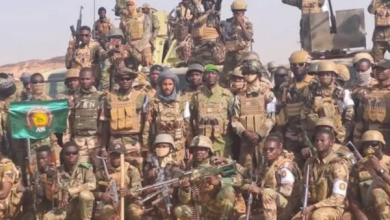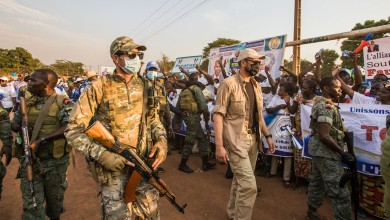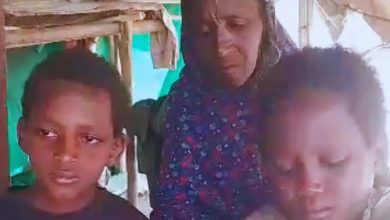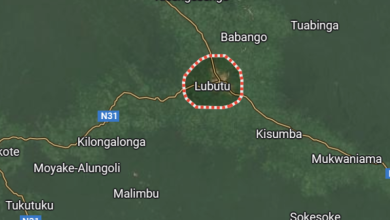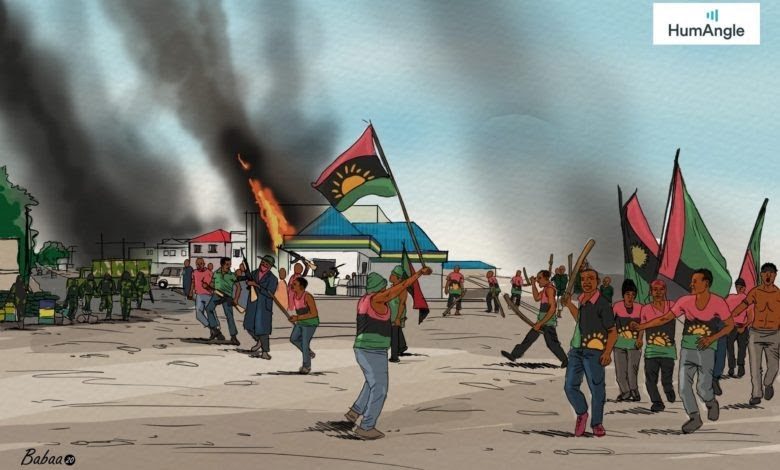
Nigerian security forces have conducted a series of intelligence oriented operations on separatist militants in the southeastern part of the country.
Over the past few months, intelligence operatives and combat units have targeted cells and fighters of the Eastern Security Network (ESN) in response to deteriorating security in the region and violent attacks on security and government assets including correctional, election and police facilities.
Since the formation of the ESN, an armed division of the proscribed Independent People of Biafra (IPOB), insecurity incidents and killing of security officials have surged in the Southeast.
Multiple videos and photographs shared online show ESN fighters with AK pattern rifles walking around streets and sometimes with locals cheering them, which gives a glimpse into the broader social, political and economic crisis that has contributed to the growth of the separatist group.
A 2017 poll conducted by SBM Intelligence, a Lagos-based think-tank, found that Biafran sentiments among the local populace were growing.
“Our survey reveals that in general terms, there is rising support for Biafra in the Southeast and South-south geopolitical zones. However, those who support secession are not yet in the majority. More people are inclined towards a restructuring within a united Nigeria,” SBM noted.
Nigerian government found itself facing a separatist militancy, five decades after the end of the brutal civil war between the country’s federal troops and soldiers of the breakaway Republic of Biafra, which led to the death of an estimated three million people.
The ESN is spearheaded by IPOB leader Nnamdi Kanu, who is known for spreading inflammatory messages, particularly through broadcasts on the radio channel, Radio Biafra, which he founded in 2009.
He was arrested in Oct. 2015 in Nigeria’s economic capital, Lagos, located in the southwestern part of the country, on charges of conspiring to commit treason.
Kanu was detained for about 18 months and then released pending his trial. He subsequently jumped bail in 2017 and fled the country. Recently an intelligence crafted operation culminated into his extraction back to Nigeria and the continuation of his suit.
The police intelligence and tactical units particularly the Intelligence Response Squad, Special Tactical Squad, Anti-Kidnapping Unit have raided enclaves of separatist militants and carried out arrests of persons of interest.
Usman Baba Alkali, Nigerian Inspector General of Police was quoted in a report discussing that a new operation code named ‘Operation Restore Peace’ was launched on May 19, 2021, to restore peace and constitutional order in the Southeast and South-south zones.
He revealed the mass mobilisation and deployment of operational assets including the Police Air Wing, Marine, and the Explosive Ordnance Department, in addition to expanding intelligence-led operations to confront armed secessionist groups through enhanced intelligence gathering efforts and utilization capacity.
As part of the response, the police were going to also enhance intelligence sharing through strengthening inter-agency collaboration with the Military, domestic intelligence agency (SSS).
In May, the Nigerian Army said it arrested the Second-in-Command to the ESN commander killed earlier by security forces in Aba town in Abia State.
The Army, in a statement, said an intensive manhunt was launched after he had escaped from his village on May 4 when operatives of the Intelligence Response Team stormed his hideout.
In June, following the arrest and debriefing of an ESN commander, tactical and intelligence units conducted raids on three camps in Atta, Izombe, and Ideato North areas in Imo State.
In an interview published in July by Vanguard newspaper, a 28-year-old suspect described as a commander with the ESN in Imo State provided details on violent attacks conducted by the group, internal workings of the group, and link with the IPOB leader.
The suspect was quoted saying “While I was in the village, one John, who is from my town met me and told me he knew I was trying to join the military but advised me to join IPOB in 2019. So I started attending IPOB meetings in Orlu every Sunday. We used to have the meetings in a building close to the Teaching Hospital.”
“I attended the meeting until Nov. 2020 when Mazi Nnamdi Kanu formed the ESN and said he didn’t want any security agents in the Southeast and that all he wanted was just ESN operatives providing security in the Southeast.’’
In Nigeria’s federal capital, Abuja, located over 500 kilometres from Imo, intelligence operatives burst into a meeting and arrested individuals for providing financial support for the group’s activities.
These individuals were said to have been convinced that the State of Biafra could be achieved through a referendum which influenced them to join the group and start donating money to its cause.
Three dismissed soldiers who took part in training thousands of separatists fighters have also been arrested by the police Intelligence Response Team acting on intelligence generated from some members of IPOB after raids in Imo, Anambra, Delta states and the Federal Capital Territory, Abuja.
One of the suspects enlisted into the Nigeria Army in 2013 and was dismissed in 2019 while the remaining two enlisted into the Army in 2015 and 2017 respectively.
HumAngle understands that asides the impact of the security operations against ESN, the popular support enjoined by the group has suffered from the indiscriminate targeting of civilians and individuals regarded as saboteurs or perceived to be enemies of their campaign as well as resistance to the Biafran idea from the South-south.
These internal and external setbacks provide an opportunity for the federal and state governments to carry out social and economic interventions to address the grievances of the people alongside security operations that specifically target criminals and protect the local population.
Support Our Journalism
There are millions of ordinary people affected by conflict in Africa whose stories are missing in the mainstream media. HumAngle is determined to tell those challenging and under-reported stories, hoping that the people impacted by these conflicts will find the safety and security they deserve.
To ensure that we continue to provide public service coverage, we have a small favour to ask you. We want you to be part of our journalistic endeavour by contributing a token to us.
Your donation will further promote a robust, free, and independent media.
Donate Here
